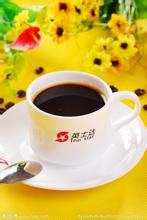Introduction to the characteristics of the flavor and taste of Yega Chuefei Adoto coffee with good sour taste
Most coffee beans are washed, but there are also a small number of absolute crystal beans deliberately use solarization method to enhance the attractive fruit flavor and body. These mountain villages are misty, spring all the year round, breezy in summer, cool but not hot, rainy but not damp, and cold in winter, giving birth to unique citrus and floral "regional flavor". Coffee called F trees are mostly planted in farmers 'own backyard or mixed with other crops in the farmland. The yield per household is not much. It is a typical pastoral coffee. Almost all of Yejia Xuefei's award-winning beans come from the above-mentioned coffee villages and communities.
The so-called "yega-sherry" refers to intense jasmine, lemon or lime acid aromas, as well as peach, almond and tea aromas. The author's taste experience is only one sentence: "Coffee entrance, flowers bloom!" The field is like a flower that touches the taste buds and nasal olfactory cells. In addition to the floral fragrance, the delicate body is like silk, and the touch is wonderful. Many coffee chemists are now studying the microclimate and soil conditions surrounding yegashifi, a subsidiary of sidamo, to develop a formula for fine coffee cultivation. This town is located in the northwest of West Damo, surrounded by mountains and lakes, and is one of the coffee producing areas with the highest average altitude in Egypt. However, the production method and flavor here are so prominent that Egyptian coffee farmers compete to be proud of their own coffee with Yejia Shefi flavor, so they are independent from West Damo and become the most famous producing area in Africa.
At first, the coffee trees in Yegashefi were planted by European monks (somewhat similar to Belgian monks who cultivated wheat to brew beer), but later by farmers or cooperatives. Yegashefi is actually formed by surrounding coffee communities or cooperatives, including Edido, Hafusa, Hama and Bdon near Fog Valley. 90+ is a vertically integrated coffee bean producer with a very good reputation and reputation internationally, focusing on the production of fine coffee and committed to establishing deep and long-term relationships with farmers. Since its establishment in 2007, it has frequently received Coffee Review scores of more than 90 points, and traces of 90+ can be seen in coffee competitions of all sizes around the world. The quality shop is also very lucky to get this Ye Jia Xue Fei sun coffee beans, to share with the people.
We choose light roasting to maximize flavor, acidity and body while reducing bitterness, restoring the original feel of SCAA beans.
What is Fine Coffee?
Specialty Coffee is a proper noun, not an adjective.
Fine coffee is coffee beans that have been tested by the International Cup Tester Cup and scored above 80 points on the SCAA(American Fine Coffee Association) scale.
As coffee has grown in popularity, from instant to blend, there has been a higher demand-third wave coffee, innovative experience, must-have boutique coffee. Yerga is famous for its signature citrus lemon blossom, lemon black tea flavor, and now more famous for its sun-baked tropical fruit flavor. Yejia Xuefei has been sought after by many coffee lovers because of its easy-to-recognize flavor, and it has also made many people who have first come into contact with coffee feel different from the taste of instant coffee and Starbucks before.
Of course, Ye Jia Xue Fei would also make a small mistake.
Since Yejia itself is mainly small beans, it is suitable for medium and shallow baking. After all, it is a native species, and it is impossible to be as uniform as the beans exported by size in Central and South America. Yega's grading is based on a combination of physical defects and cup test quality. So in fact, the size of the original beans is not consistent, but now the size of the market is surprisingly consistent, that is, not large. A reference to Sidama Sunlight G3 actually tells you what the original seed looks like, but there are also bean vendors who write that the seed of yejia bean is tibika. According to common sense, the fruit acid flavor is so rich, it should also be bourbon.
Yejia sherry is a well-deserved representative of the third wave coffee, one of its characteristics is its easily identifiable flavor. The second tends to be characterized by an a value of 55, which requires a deeper roast than traditional Central and South American washed beans, and may be suitable for an a value of about 25 to 40.
As for why, although some people like to use a chart to explain how the sourness of the flavor decreases and the bitterness increases over time, the taste of coffee and the coffee beans themselves are actually wonderful things. It's not that the sour taste burns out and the rest is bitter, nor is it that the sour aroma substances are fixed. What the chart doesn't tell us is that these lost aromas can still be converted into other substances. The complexity of what we feel in our mouths isn't drawn by a few lines in a picture.
Coffee beans are a kind of plant fruit, but also a crop. The existence of Ye Jia Xue Fei better explained the attribute of coffee as a fruit. The third wave of specialty coffee has always wanted to interpret the regional flavor of coffee. As for this problem, look at the counterculture coffee flavor wheel. Nearly half of them have flavor descriptions about fruits. There are also many characteristics that people can think of as fruits at a glance, and the following will not be repeated. And the flavor of Yejia can be compared with each other.

Important Notice :
前街咖啡 FrontStreet Coffee has moved to new addredd:
FrontStreet Coffee Address: 315,Donghua East Road,GuangZhou
Tel:020 38364473
- Prev

Introduction to the characteristics of the flavor and taste of Yega Sheffield Wauka coffee with heavy dried fruit flavor.
The coffee trees of Yejiaxuefei, a Chinese coffee network, were planted by European monks (a bit like Belgian monks planting wheat to brew beer), and were later transferred to farmers or cooperatives. Yega Xuefei is actually constructed by surrounding coffee communities or cooperatives, including Edido Idido, Hafusha Harfusa, Hama Hama, Biloya, near Fog Valley Misty valley.
- Next

Introduction of sweet and delicious varieties of Colombian boutique coffee bean manor producing area
No matter in terms of yield or texture, Colombian coffee is first produced by Medellin, which is characterized by full granules, rich nutrition, moderate acidity, good balance, rich aroma and soft taste. In addition to Medellin, the provincial capitals of two neighboring provinces in the south, Armenia and Manizales, are also famous coffee producers
Related
- Detailed explanation of Jadeite planting Land in Panamanian Jadeite Manor introduction to the grading system of Jadeite competitive bidding, Red bid, Green bid and Rose Summer
- Story of Coffee planting in Brenka region of Costa Rica Stonehenge Manor anaerobic heavy honey treatment of flavor mouth
- What's on the barrel of Blue Mountain Coffee beans?
- Can American coffee also pull flowers? How to use hot American style to pull out a good-looking pattern?
- Can you make a cold extract with coffee beans? What is the right proportion for cold-extracted coffee formula?
- Indonesian PWN Gold Mandrine Coffee Origin Features Flavor How to Chong? Mandolin coffee is American.
- A brief introduction to the flavor characteristics of Brazilian yellow bourbon coffee beans
- What is the effect of different water quality on the flavor of cold-extracted coffee? What kind of water is best for brewing coffee?
- Why do you think of Rose Summer whenever you mention Panamanian coffee?
- Introduction to the characteristics of authentic blue mountain coffee bean producing areas? What is the CIB Coffee Authority in Jamaica?

